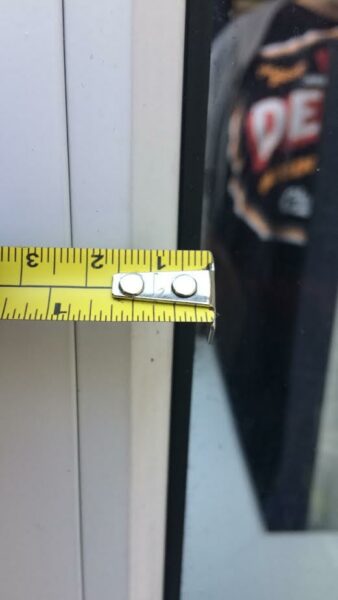Fitting Integral blinds to existing glass and windows, as well as doors, is something some homeowners may be considering. If you have recently purchased a new bifolding door with integral blinds, how easy is it to fit integral blinds to existing glass and windows?
Integral blinds are hugely popular in home improvement projects today. Specialist manufacturers of integral blinds exist all over the UK and around the world.
Information about fitting integral blinds to existing glass and windows.
Integral blinds are very attractive and desirable with a new bifolding or sliding door. To fit integral blinds to existing glass and windows, there are some things to consider. As with any alteration, retro-fitting integral blinds will depend on some factors. There are also risks involved as well.
Benefits to replacing your existing glass with integral blinds.

Integral blinds bring all the advantages of modern double glazing to the home. They are hermetically sealed with the double glazed unit. This means:
- Integral blinds never need cleaning.
- Integral blinds will not get dusty.
- Integral blinds are less prone to wear and tear.
- Integral blinds are desirable and current.
- Integral blinds are a long-term proposition.
Disadvantages to integral blinds.
The possible disadvantages to integral blinds are evident in some areas and subjective in others. In the interest of balance, here are the potential negatives to consider with integral blinds.
- Integral blinds are more expensive than standard glass units.
- Integral blinds may not be ideal if you frequently replace your window coverings or often decorate your home with a new look.
- Integral blinds are part of the glass and often can’t be repaired. Should either glass or blind fail, both will need replacing.
- You cannot use your existing double glazed units.
What is the process for fitting integral blinds to existing windows?
When you talk to your local installer about integral blinds for your existing glazing, there are many factors they will need to consider. This will help them understand if the work can be carried out as well.
The thickness of your existing double glazed units.
Modern integral blinds for external windows and doors are typically designed around a 28mm unit and above. Some integral blinds are possible with 24mm units as well. If you have 16mm, 18m, or 22mm glazing in your windows, it is likely integral blinds will not fit in your existing windows.
Window companies use a special tool to establish the thickness of your double glazed unit.
The glazing rebate of your existing windows.
All double glazed units sit within a ‘rebate’ in the window or door. That is the dimension between the start of your glass and the edge of the frame or opening light. Some older systems have very narrow rebates, others are more standardised.
Your local installer will be able to establish whether the current glazing rebate suits current integral blinds.
The age and condition of the existing windows and doors.
In fitting new glass with integral blinds, the overall condition of your windows and doors will be important. We suggest not installing integral blinds to very old windows as we highlight below with potential risks involved as well.
Risks involved with fitting integral blinds to existing glass and windows.
Your double glazing is now obsolete.
Windows and doors, just like any continuously improved and upgraded product can quickly become obsolete. If your windows and doors, whether aluminium or PVCu are over five years old, it is worth checking with your installer how current these are. It is common for systems companies to change profiles, glazing beads and other sections.
The glazing bead (the profile that holds your glass in place) might be obsolete. Should the glazing bead break in removal or re-fitting (very common with old PVCu window beads that can become brittle) it will be virtually impossible to source a replacement.
The lack of replacement parts may also apply to other components of your windows such as gaskets, weatherstrips and glass security tape and clips.




Your doors are manufactured around the glass.

Early generations of aluminium patio doors, front doors and French doors were the type that was made around the glass (called wrap-around glazing). In theory, it is entirely possible to dismantle the doors and replace the glass with a new sealed unit and integral blind.
There may be difficulty in finding a company willing to undertake this work. If you do want integral blinds in your existing wrap-around doors, you may find a local double glazing repair firm is more competent is carrying out this work than a door and window installer.
There is also a risk that original fixings, screws or brackets may break and are hard to source. Our advice is to give these types of doors careful consideration before embarking on fitting integral blinds to existing glass and windows that have no beads and are made around the glass.
It is right to highlight the risks involved with carrying out alterations to existing windows and doors. Therefore there is a greater risk with old windows and door systems than the current products.
There’s also more information you can find about repairing integral blinds in PVCu or aluminium windows.
Need information about integral blinds to existing glass and windows? Contact us.
It is worth pointing out that the more expert the glass manufacturer and window company, the greater the possibilities. As a good example, you may have a special type of window with acoustic, solar control or other specialist glass fitted. It is true that most integral blinds need fitting around new glass. However, a competent and specialist integral blind manufacturer may be able to take your existing glass (subject to condition) and make new units with integral blinds.










